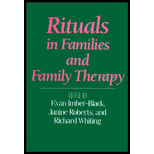From the author's website:
Kat Jennings and Scott Murphy don’t just play two people who are secretly in love on a television sitcom–they are also head over heels for each other in real life.
When the lines between reality and TV land blur, they hope they can keep their relationship under wraps. But when Kat’s grandmother, an aging Hollywood starlet with a penchant for wearing elaborate evening gowns from Golden Age movies, mistakes their on-screen wedding proposal for the real deal, things begin to spiral out of their control. Will their secret be front-page news in the tabloids tomorrow? And can their budding romance survive the onslaught of paparazzi, wedding preparations, and misinformed in-laws?
From the sound stage to a Beverly Hills mansion to the gleaming Pacific Ocean, Stars Collide takes readers on a roller-coaster tour of Tinseltown, packing both comedic punch and tender emotion.
The premise of this book was really unique. I mean, stars in love on a sitcom actually being in love with one another. Throw in a grandmother with dementia and things rapidly get out of hand. I loved how Janice had the characters quoting films from long-ago eras, making it a quirky game they all played. It was also neat to get a "backstage pass" to behind-the-scene drama from a sitcom.
Donning my therapist hat, there were two aspects of Stars Collide that intrigued me, not only by the very subject matter, but how it was conveyed over the pages. The first is the heroine's backstory of being abandoned by her father when she was seven years old. Janice couples Kat's emotional trauma with that of a young, spoiled child's on the sitcom set, and a powerful scene emerges in the ladies' restroom as Kat realizes that she and the little girl are very much the same, wondering what each had done to not inspire love from their fathers. I really like how Janice brings to Kat's mind various scripture of her heavenly father to help her cope with the disinterest of her earthly one.
The second aspect of this story that readers with aging parents or grandparents will identify with is that of Kat's grandmother, Lenora. Lenora shows all the beginning signs of dementia, forgetting small details or recent conversations, but being able to vividly remember minutia from fifty years ago. Kat struggles with the idea that Lenora is losing her mind, as would any caregiver. However, the whole book is basically built on the assumption that one shouldn't try to upset people with dementia, and things get really out of control.
There are various schools of thought on how to treat dementia. Some say you leave the person to their memories and don't intrude on their reverie with the harsh reality of today. Others say you do the person a disservice to essentially lie to them about life. Kat and Scott and everyone around Lenora actually go to grave lengths to keep her from realizing the mistake she has made in assuming the on-set engagement was real. It actually gets a bit ludicrous in how far they all go to keep Lenora from getting upset, but I can also see the very human motivation behind their actions to not tell her she's wrong.
Overall, this was a very entertaining book, set in a great location, with a good premise to keep you turning the pages. If you like women's fiction books formerly known as chick-lit, you'll like this first-person story a lot. It was a thoroughly delightful read that I hope you'll want to read as well!
The giveaway is open to anyone in the US. Leave your email address in the comment section below for one entry. Retweets about the giveaway will get you an extra entry! Winner will be announced Saturday! Good luck!
Available January 2011 at your favorite bookseller from Revell, a division of Baker Publishing Group.























